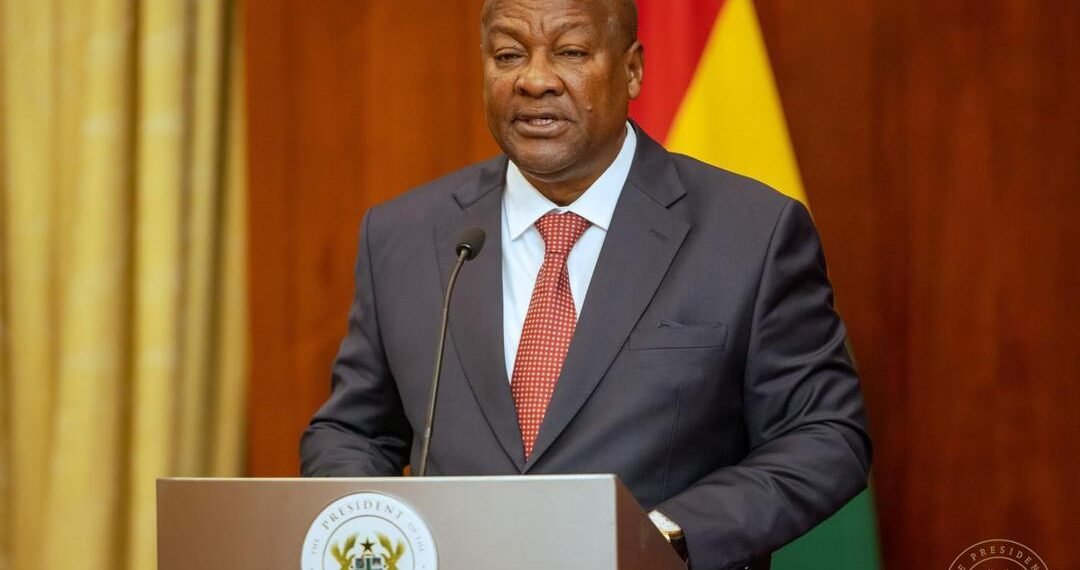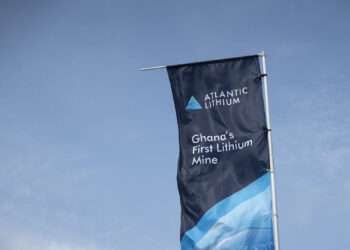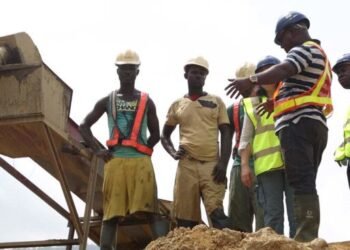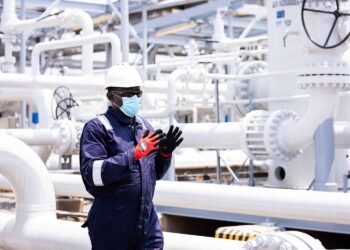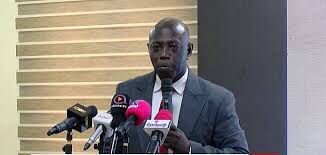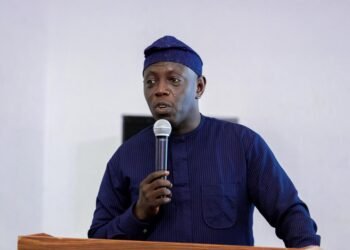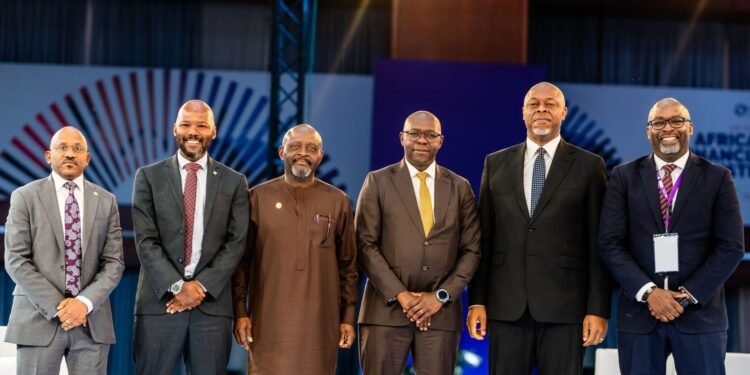President John Dramani Mahama has rallied public support behind the recent amendment to the Energy Sector Levies Act (ESLA), assuring the nation of transparent and purposeful use of the revenue to be generated.
The amendment, passed by Parliament under a certificate of urgency, introduces a GH¢1 increase in the Energy Sector Recovery Levy per litre of petroleum products, as part of a strategic effort to stabilise power generation and resolve the energy sector’s mounting debt crisis.
President Mahama, speaking on the matter following the bill’s passage, painted a sobering picture of the energy sector’s financial landscape, describing it as “the greatest existential threat to fiscal consolidation and macroeconomic stability.”
“Parliament yesterday approved an amendment to the Energy Sector Levies Act under a certificate of urgency, introducing a GH¢1 increase in the Energy Sector Recovery Levy. This decision, though difficult, is necessary and justifiable.”
HE President John Dramani Mahama
He revealed that Ghana’s energy sector is saddled with a staggering debt of over US$3.1 billion. Compounding the crisis, he noted, is the immediate need for an additional US$1.8 billion to finance fuel procurement necessary for uninterrupted thermal power generation over the coming months.
If left unaddressed, President Mahama warned that the situation significantly threatens national productivity and industrial growth.
While he acknowledged that his administration has devised a strategy to liquidate the debt and staunch the bleeding in the power sector, President Mahama underscored the critical need for urgent action.
He emphasised that the levy increase was not a hasty or arbitrary decision, but rather a necessary and well-thought-out measure to save the sector and avert recurring power outages that have in the past stifled economic activity and public confidence.
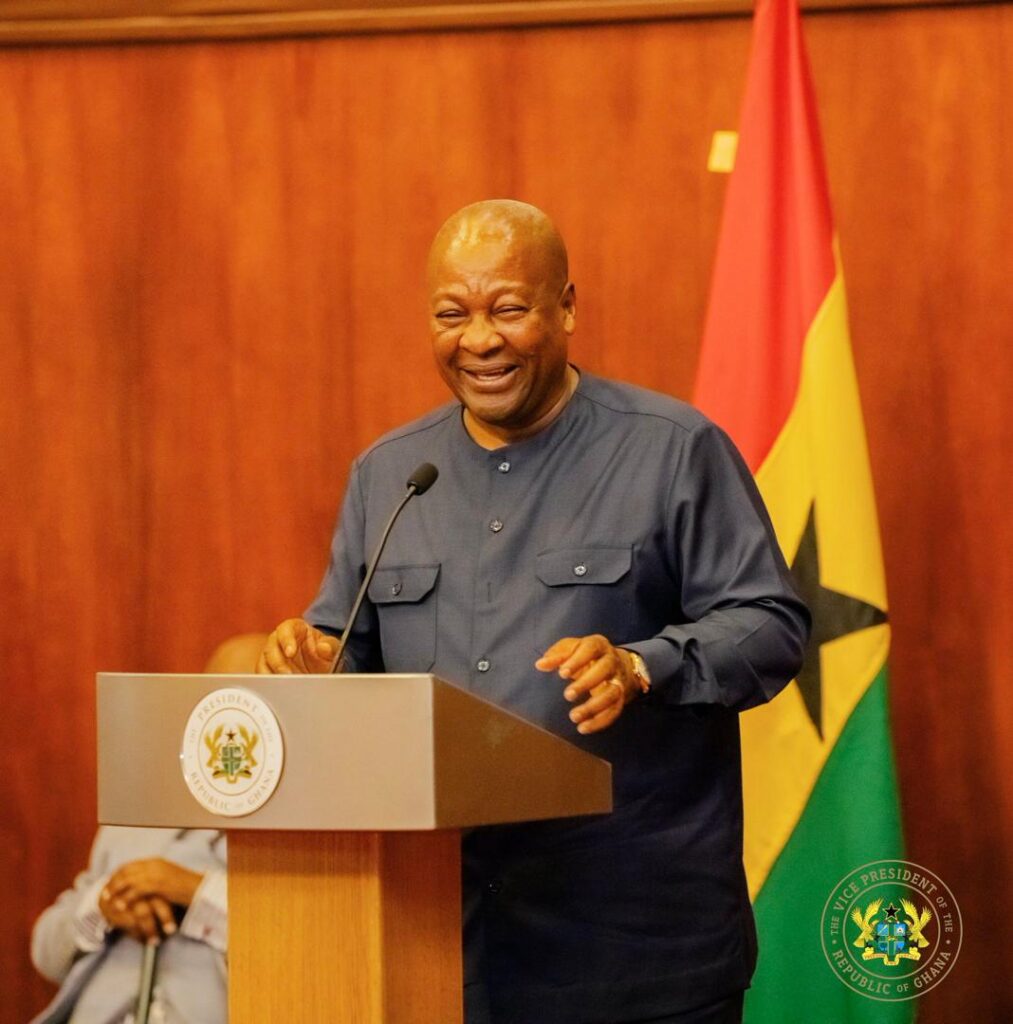
Commitment to Accountability and Transparency
According to President Mahama, the GH¢1 levy is projected to generate approximately GH¢5.7 billion annually, which will be “strictly ring-fenced” and insulated from the vulnerabilities of the consolidated fund.
In a move to boost public trust, the President pledged that the funds will be regularly audited, with audit reports made available to the public. This, he stated, was to ensure complete transparency and accountability in the use of the resources mobilised from the levy.
The initial bulk of the revenue, President Mahama explained, will be channelled into fuel purchases to ensure a steady supply of electricity.
However, with positive developments in the upstream oil and gas sector, particularly from the ENI Sankofa and Jubilee and TEN fields, as well as the anticipated additional gas supplies through the West African Gas Pipeline (WAGP), Ghana will soon be able to reduce its dependence on expensive liquid fuels.
At that stage, he said, the levy revenue would be redirected toward paying down the legacy debts accumulated in the power sector over the years.
The President further assured Ghanaians that the timing of the levy increment is favourable. He noted that with recent gains in macroeconomic stability and a strengthening Ghana cedi, the government does not anticipate an immediate impact on fuel prices at the pump.

This assertion is likely aimed at mitigating potential public backlash and calming fears of inflationary pressures that could stem from the new levy.
“I understand the burden this places on households and businesses, and I want to assure all Ghanaians that this decision was not taken lightly”.
HE President John Dramani Mahama
Cutting Down Energy’s Sector Inefficiencies
He reiterated his government’s commitment to working with urgency to reduce systemic inefficiencies in energy procurement and distribution.
At the same time, he assured that social intervention programmes would be expanded and better targeted to cushion the most vulnerable segments of the population.
The Energy Sector Levies (Amendment) Bill, 2025, was introduced in Parliament by Finance Minister Dr. Cassiel Ato Forson. The accompanying memorandum made clear that the revision of the levy was necessitated by persistent financial risks undermining the sector’s sustainability.
Without decisive intervention, the document argued, the sector’s fiscal stress could derail national development and compromise electricity supply reliability.
Ghana’s power sector has long been plagued by financial instability, operational inefficiencies, and a ballooning debt stock largely due to over-reliance on expensive thermal generation, inefficiencies in procurement and billing systems, and political reluctance to adjust tariffs in line with market realities.
These challenges have often resulted in erratic power supply, popularly referred to as “dumsor”, which Mahama’s administration battled with during his first term. Now, in his return to the presidency, President Mahama appears poised to avoid a repetition of that crisis by pushing through hard but necessary fiscal reforms.

While opinions on the levy increase are still divided, some civil society organizations and energy policy observers have called for greater oversight and caution, while others have applauded the President’s transparency measures and recognised the pressing issues facing the energy sector.
For the time being, the measure’s success will mostly depend on the government’s capacity to fulfil its commitments to transparency, sustain macroeconomic gains, and guarantee that the higher levy results in a steady and dependable supply of electricity for homes, businesses, schools, and hospitals nationwide.
The President’s promise that “funds from this levy will not be subject to the hazards of the consolidated fund” will probably be a key tenet in persuading Ghanaians that the sacrifice they are being asked to make is, in fact, for the public good as the country works to restore trust in its energy infrastructure and fiscal management.
READ ALSO: GRNMA Decries Gov’t’s Neglect, Demands Activation of Signed Agreement

